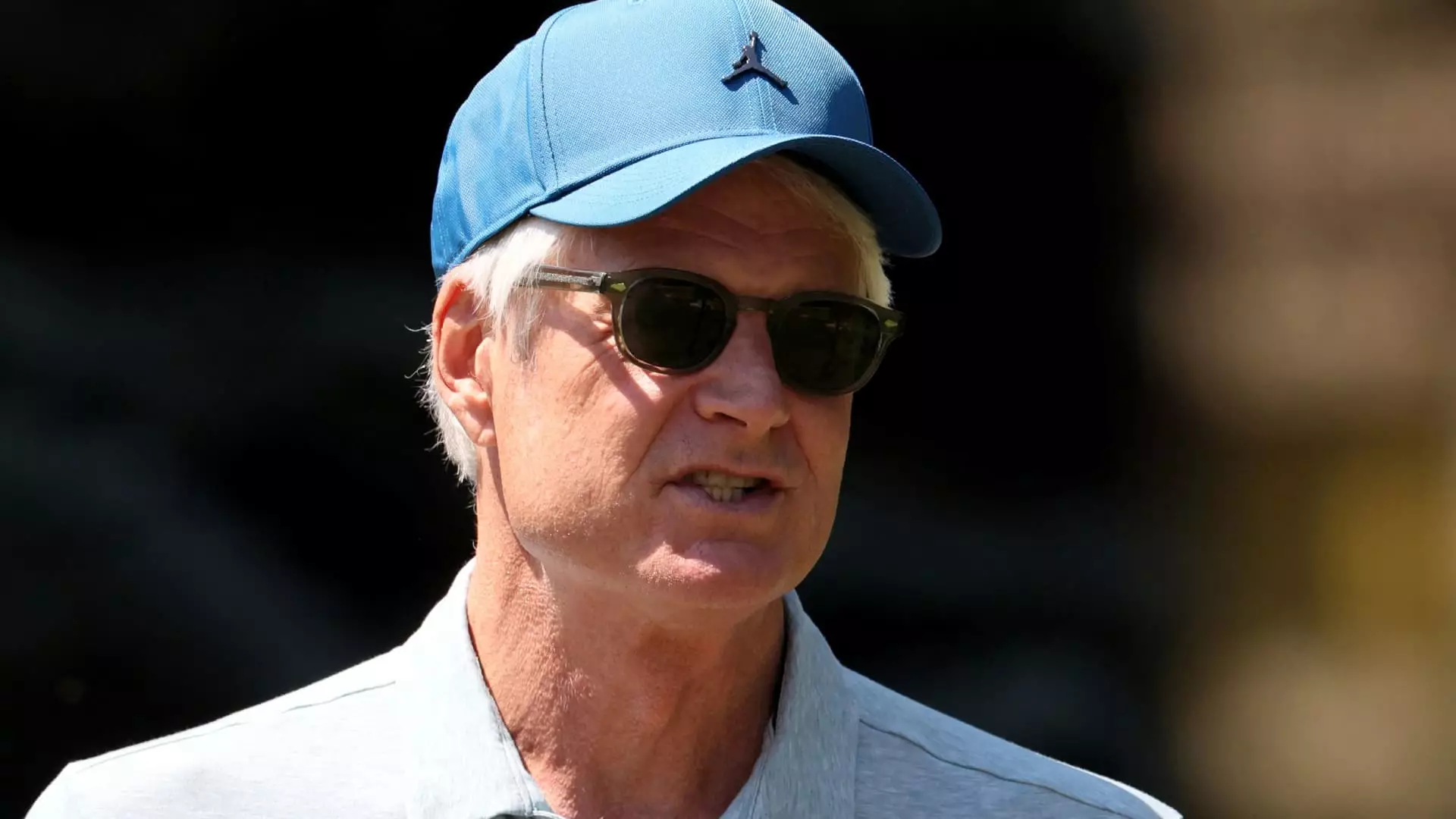In a significant shift, Nike has announced that John Donahoe, the company’s current CEO since January 2020, will step down from his position on October 13, with veteran executive Elliott Hill stepping in as his successor. This abrupt change suggests a critical juncture for the sneaker giant, indicating that the board of directors felt a new vision was essential to steer the company back to its former glory. The athletic wear giant’s shares jumped 8% in anticipated trading after the announcement, which might signal investors’ optimism in Hill’s leadership capabilities despite the stock facing a 25% decline in 2023.
This possible revival comes after a tumultuous period for Nike, marked by disappointing fiscal projections and critiques surrounding its recent strategy of prioritizing direct consumer sales. Executives, including Mark Parker, Nike’s executive chairman, and Phil Knight, the company’s co-founder, have expressed their confidence in Hill’s capability to navigate the company through these challenging waters. Hill’s well-documented history with Nike, spanning over three decades, positions him uniquely to recalibrate Nike’s approach.
The Challenges Under Donahoe’s Leadership
Donahoe’s tenure has not been without hurdles. Although he was initially brought on board to leverage his experience in digital transition—having previously managed eBay and Bain & Company—his leadership faced scrutiny amid a tumultuous retail landscape. Nike’s attempt to pivot away from traditional wholesale partnerships alienated some consumers and allowed rival brands like On Running and Hoka to capitalize on this gap in the market. During the pandemic, while e-commerce sales soared, the physical retail space was abandoned, proving to be a short-sighted move as consumer dynamics began switching back.
The company’s market positioning was exacerbated by the announcement of a 10% sales decline for the current quarter, attributed to sluggish demand, particularly in regions like China that are critical for global revenue. Analysts had anticipated a milder drop, raising alarm about the company’s grip on innovation and its ability to deliver groundbreaking sneakers that typically set market trends. Hence, Wall Street’s reaction to the leadership change indicates a collective plea for revitalization.
Elliott Hill’s return is steeped in nostalgia and optimism. Starting at Nike as an intern in the 1980s, Hill has enjoyed a remarkable career trajectory, eventually leading the company’s consumer and marketplace divisions before retiring in 2020. His intimate understanding of Nike’s culture and operations could be the antidote to the morale slump reported within the organization at this juncture. While he may lack the outsider perspective that characterized Donahoe’s leadership, his familiarity with the brand and its strategies should facilitate smoother transitions and foster innovation from within.
Moreover, Hill’s vision aligns with a return to Nike’s traditional strengths—emotion-driven marketing, groundbreaking product innovations—and a reconnecting with its loyal customer base. In his statements following the announcement, Hill articulated his enthusiasm to inspire both veteran employees and new talent, focusing on delivering innovative products that captivate consumers. His leadership style is particularly crucial for addressing the growing demands for transparency and engagement within the company’s workforce, fostering a renewed sense of purpose and direction.
The future of Nike will hinge on how well Hill can revamp its strategies to reclaim market share and restore its reputation. He understands that rebuilding relationships with wholesale partners is necessary to bolster Nike’s retail presence, which had been compromised in recent years. The company’s strategic pivot away from traditional channels was aimed at cutting costs and improving margin, yet it leaves open the question of whether the brand can sustain its identity while adapting to the evolving marketplace.
Industry analysts, such as Jessica Ramirez, have noted that Hill’s appointment presents an opportunity to uplift company morale that has been flagging in recent months. Such restoration efforts will not only involve re-engaging employees but also innovating product lines that resonate with consumer expectations in a post-pandemic world. Emphasizing flexible strategies to capitalize on both online and offline channels could become essential for regalvanizing Nike’s essence as a market leader.
As Nike embarks on this new chapter, stakeholders will be closely watching how well Hill can bridge the past with an innovative future, steering the company back to its foundational philosophy of pioneering change and fostering a strong product narrative amid shifting consumer preferences.

Leave a Reply